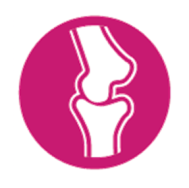Number 5 of the FCI newsletter is ready, although somewhat later than usual. But,
as number 6 is already in the pipeline and will be out soon, we will be able to
present you with six issues a year as promised. Together with my partners Marie
Luna Duran and Yves De Clercq we have worked hard to keep you informed on a regular
basis about what goes on in the world of the FCI. As if starting up a newsletter
was not enough, there were also the festivities to celebrate the FCI Centenary Year
with the FCI Centenary Champion of Champions Show and the Cynological Days recently
held in Brussels as the highlight. In the next issue we will focus on this event
only, with a full report and lots of photos. I realize that it was not just an exhausting
year for us, but for everyone who has worked hard to make all this happen, especially
all the people who helped organizing the different events...
Read more
Karl DONVIL
Member of the Editorial Board of the FCI Newsletter
Strong bones for an athletic body
Skeletal Health in Adult Dogs
Dogs are accomplished athletes, from the smallest breeds weighing less than 5kg
to those over 100kg. Their strong limbs are designed for running and jumping. In
most breeds their limb bones are relatively long to help generate speed. Compared
to humans they lack a collar bone (clavicle) that means their shoulder blades are
free of any bony attachment to the rest of their body allowing the front limbs to
be very mobile. Their hind limbs have powerful muscles to propel them along.

The development of the skeleton’s bones starts while the dog is still inside the
mother. Initially they are soft cartilage structures and once born they begin to
harden (ossify) as the pup goes through its growth phase, the cartilage is turned
into bone and calcium is needed for this. For many breeds their bones stop growing
by 12 months of age and calcium is then needed to maintain bone health. About 99%
of all the body’s calcium is found in these bones and the rest is in the cells of
the body or in the blood.
For adult dogs the diet is very important to provide a regular supply of calcium
and its balance in the body is carefully controlled by a number of hormones. Therefore
look for adult products that actively communicate bone health and that contain adequate
calcium (typically 0.8 to 1.5%).
David MORGAN, BSc, MA, VetMB, CertVR, MRCVS
Eukanuba